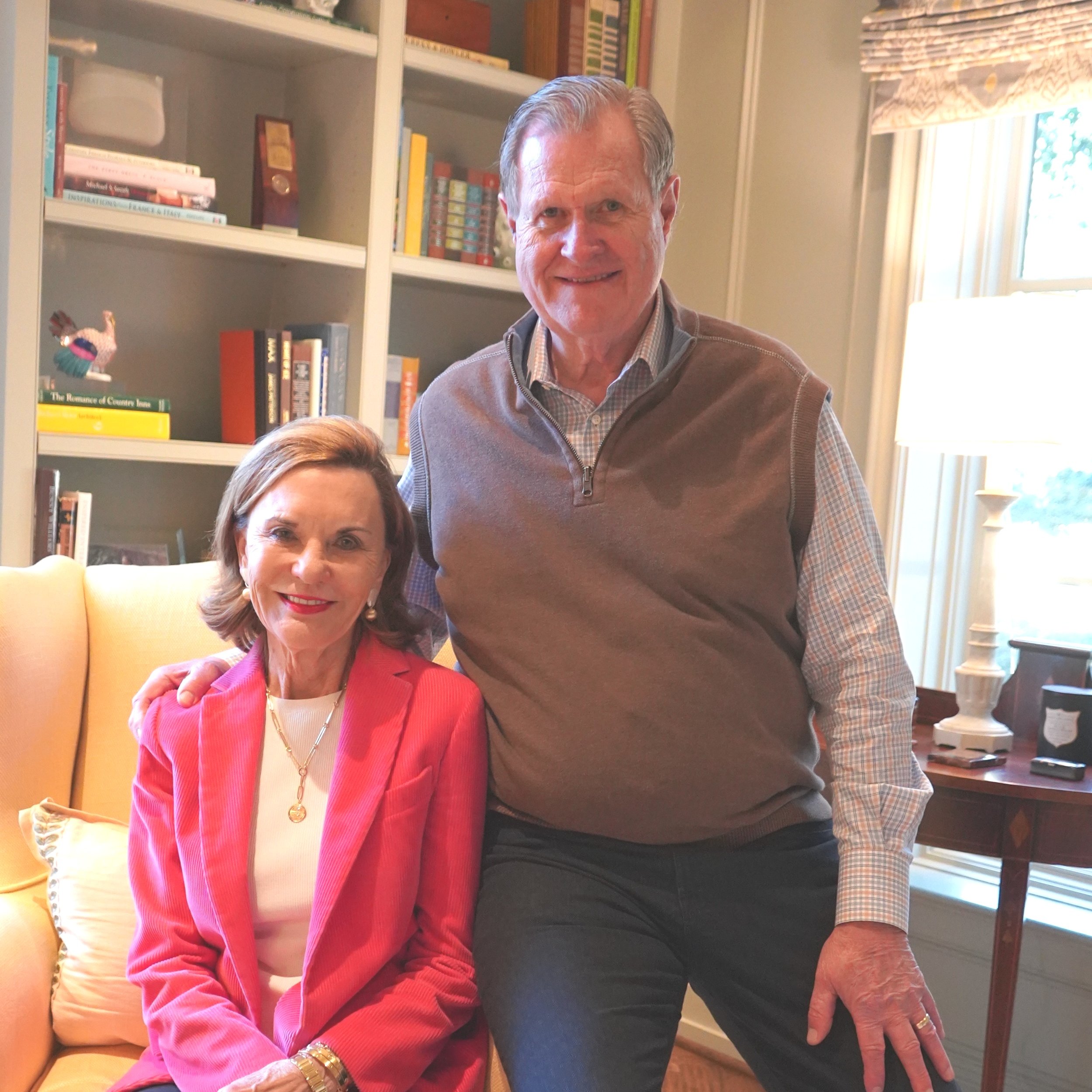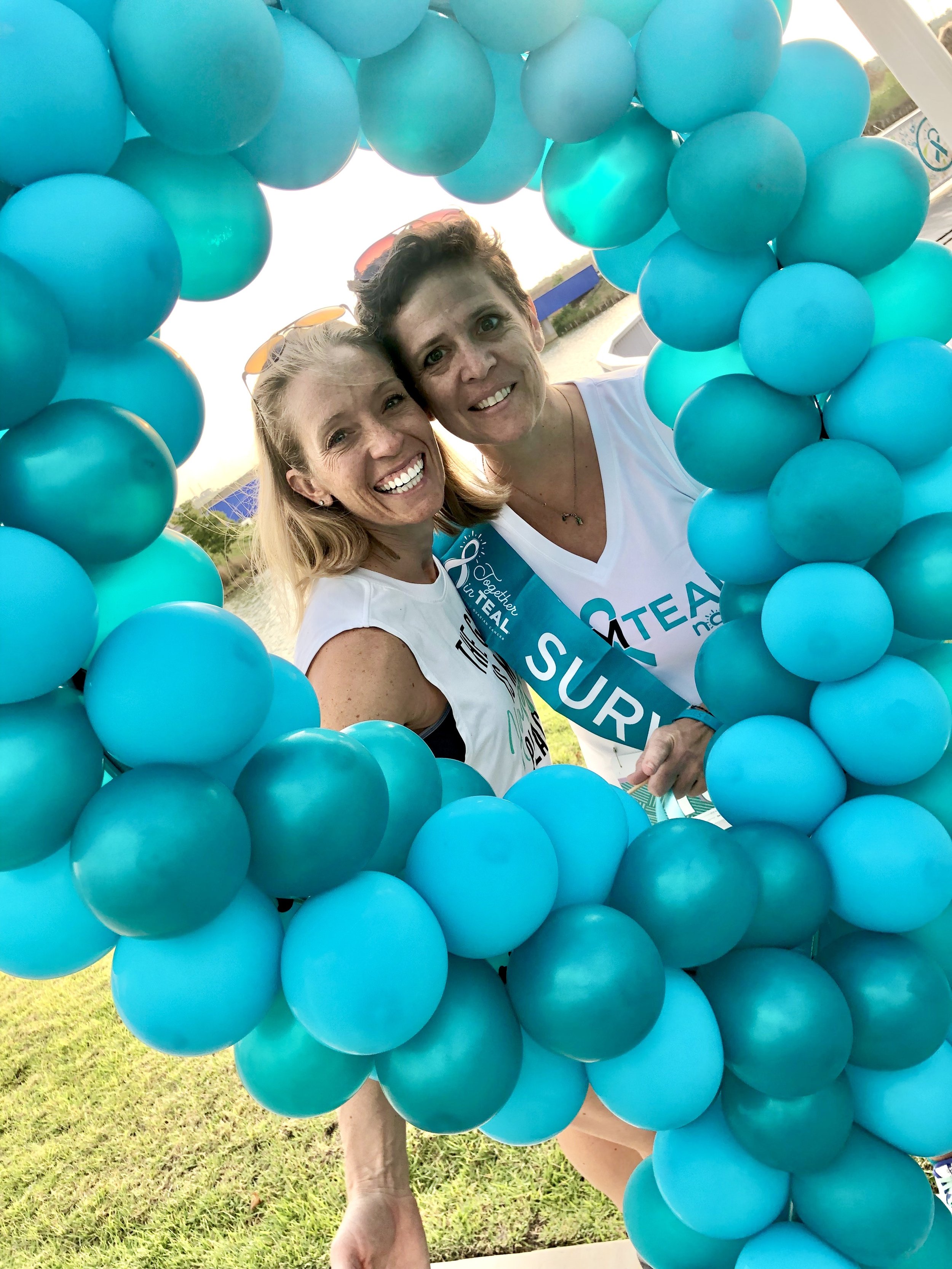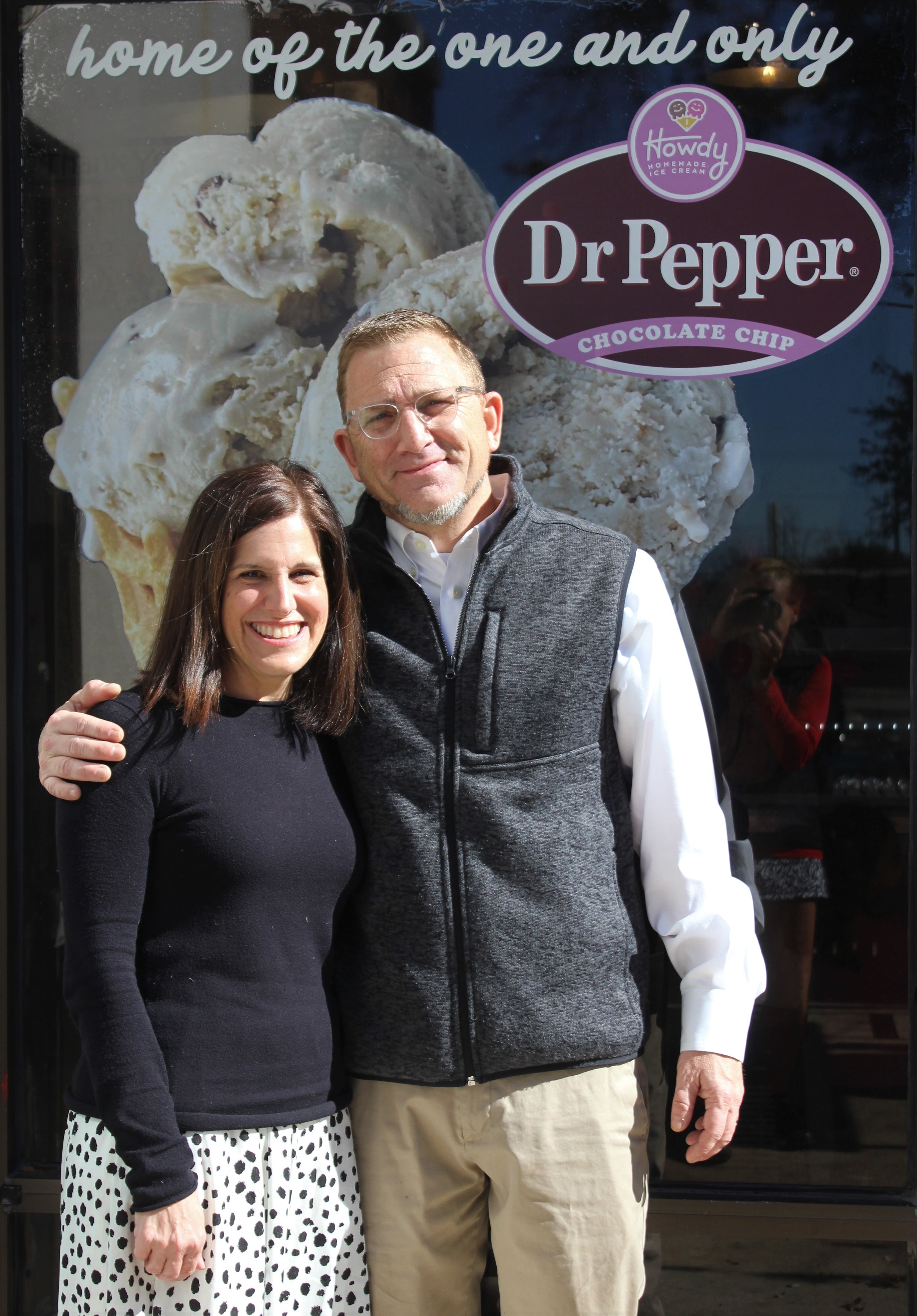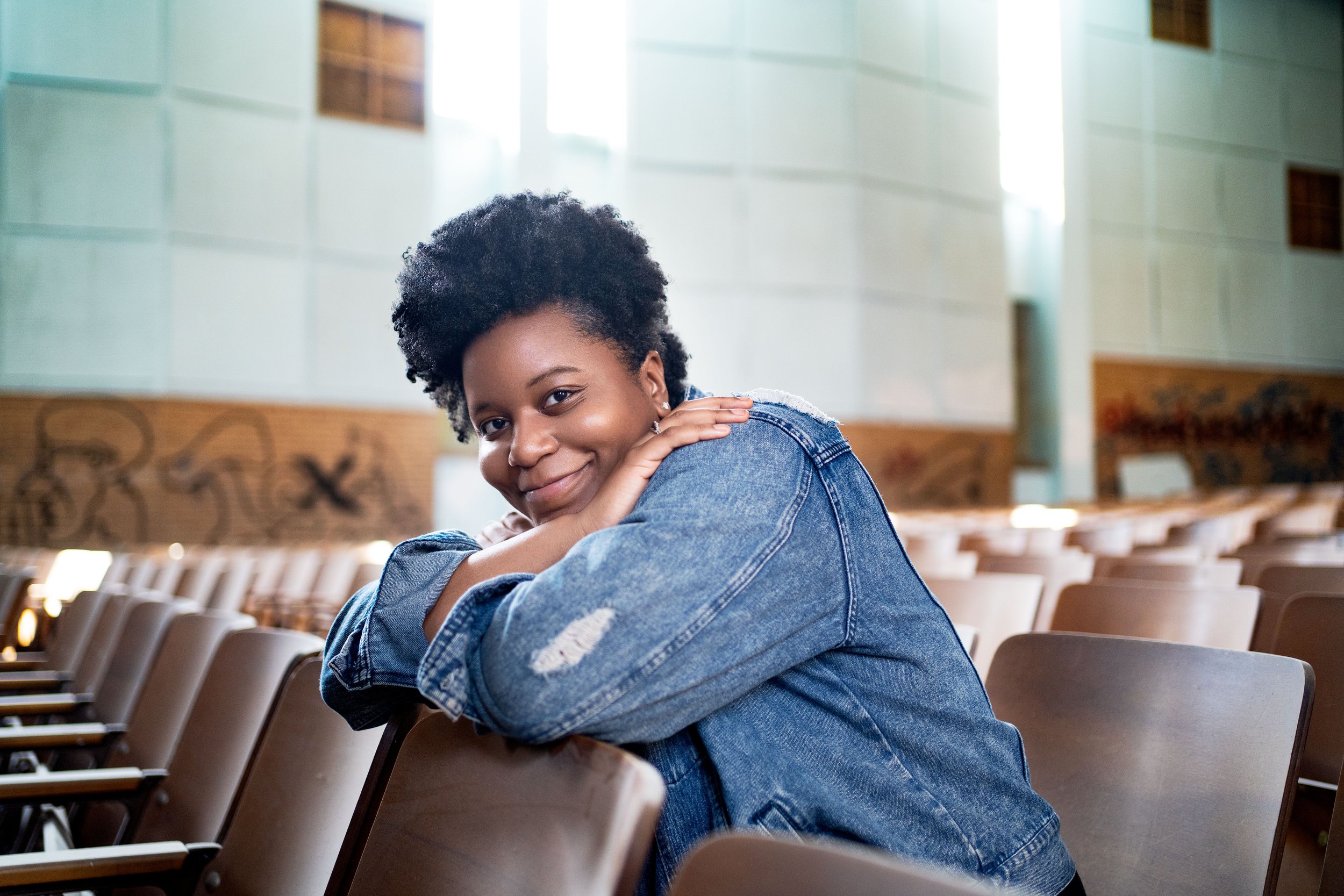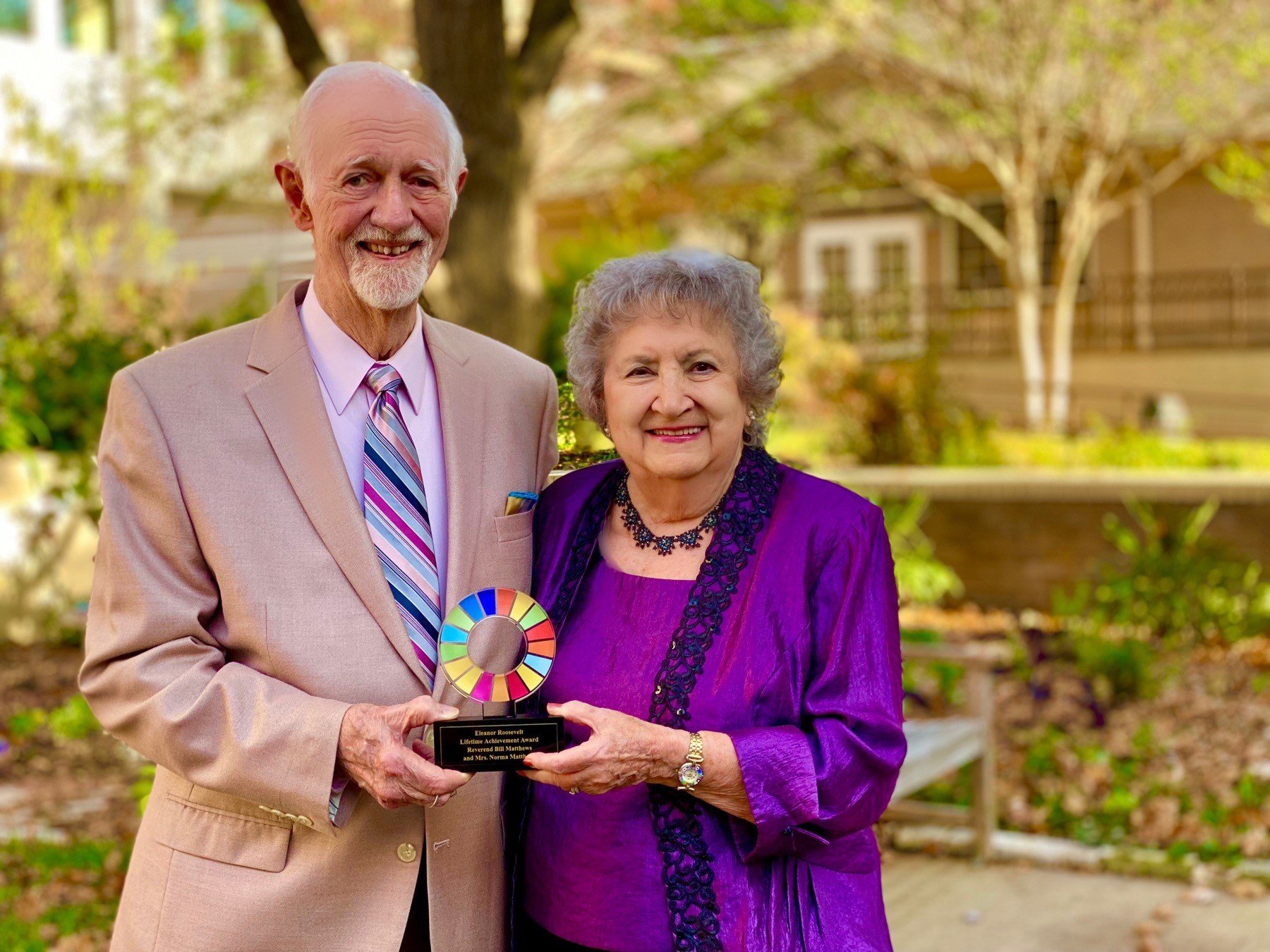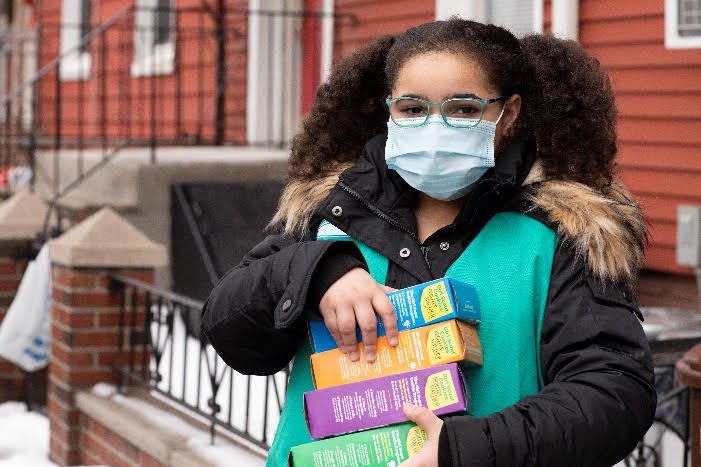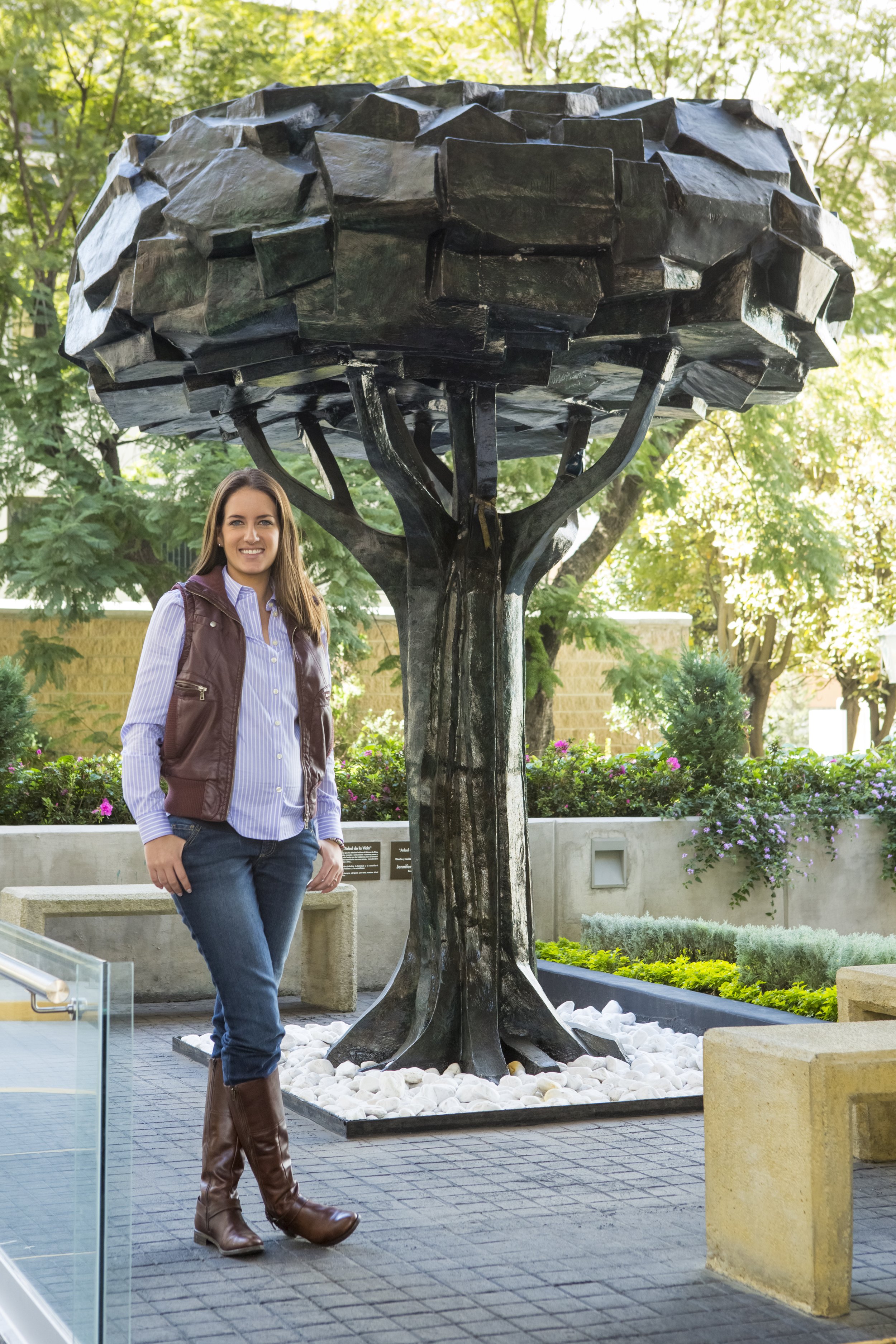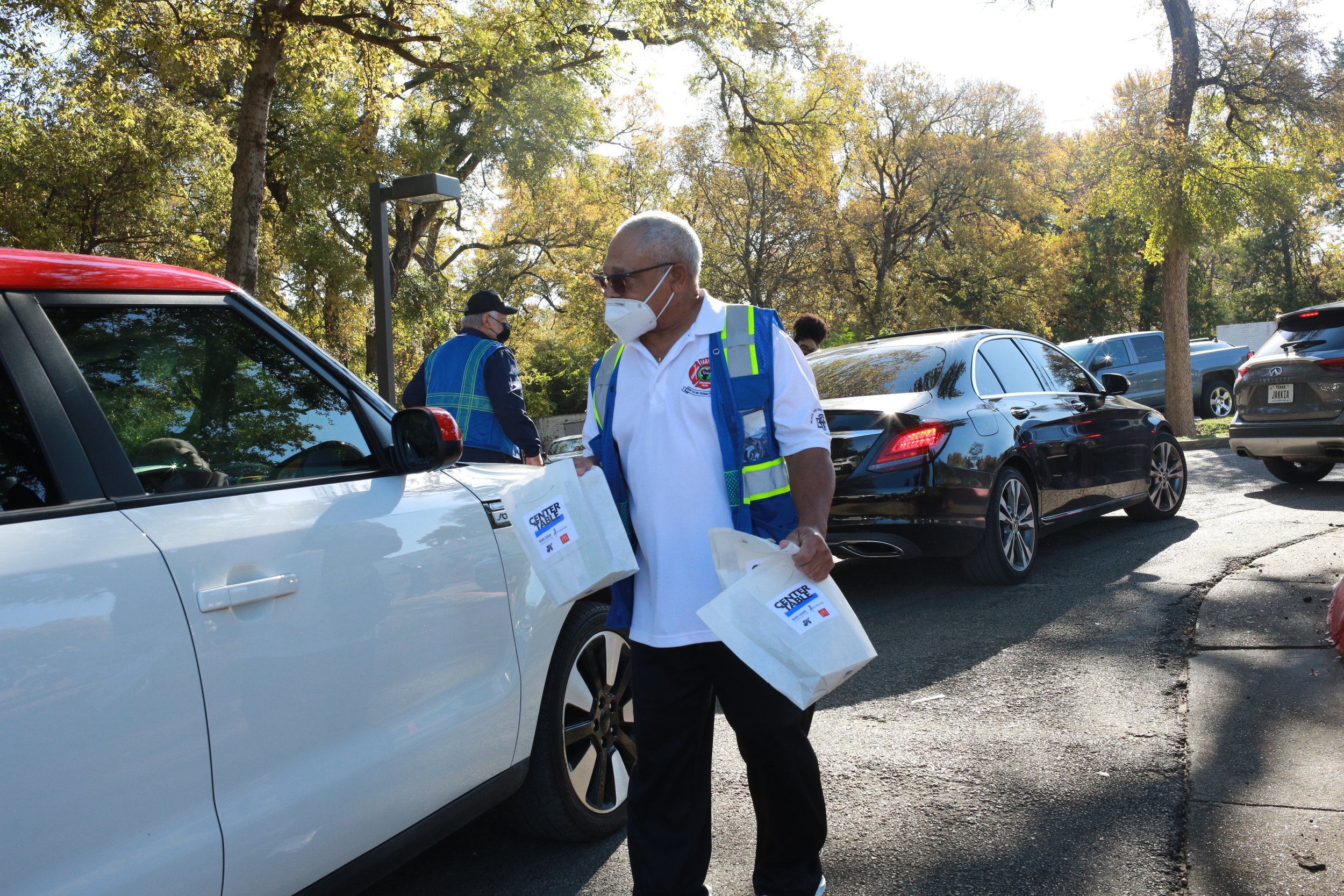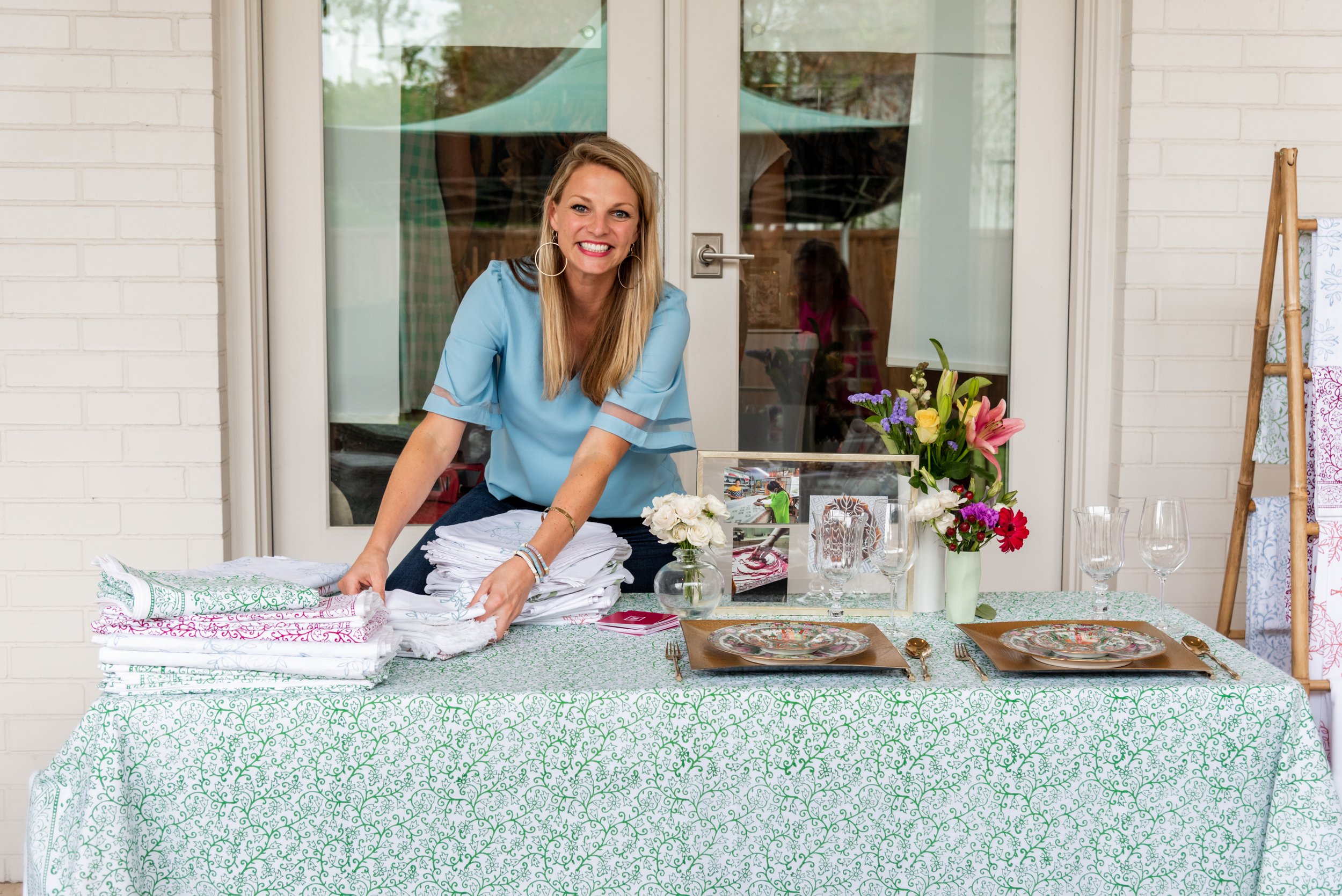Published June 25, 2020 at 1:51pm
Story by Mary Martin. Photos by Kirsten Chilstrom and Janell Bethea.
Born and raised in Columbus, Ohio, Akilah Wallace was given deep roots. Roots of loyalty and team-building as a cheerleader and track athlete, and growing up with a group of best friends who still support her to this day. Roots of fearlessness from parents who supported her after-school activities, leadership programs, and all the fundraising that went along with it. Roots of self-awareness from her Detroit-based family who taught Akilah about the beauty of being Black. And because of those roots, today Akilah is thriving as she creates opportunities for people from every background and life experience to engage in the civic and philanthropic branches of their community.
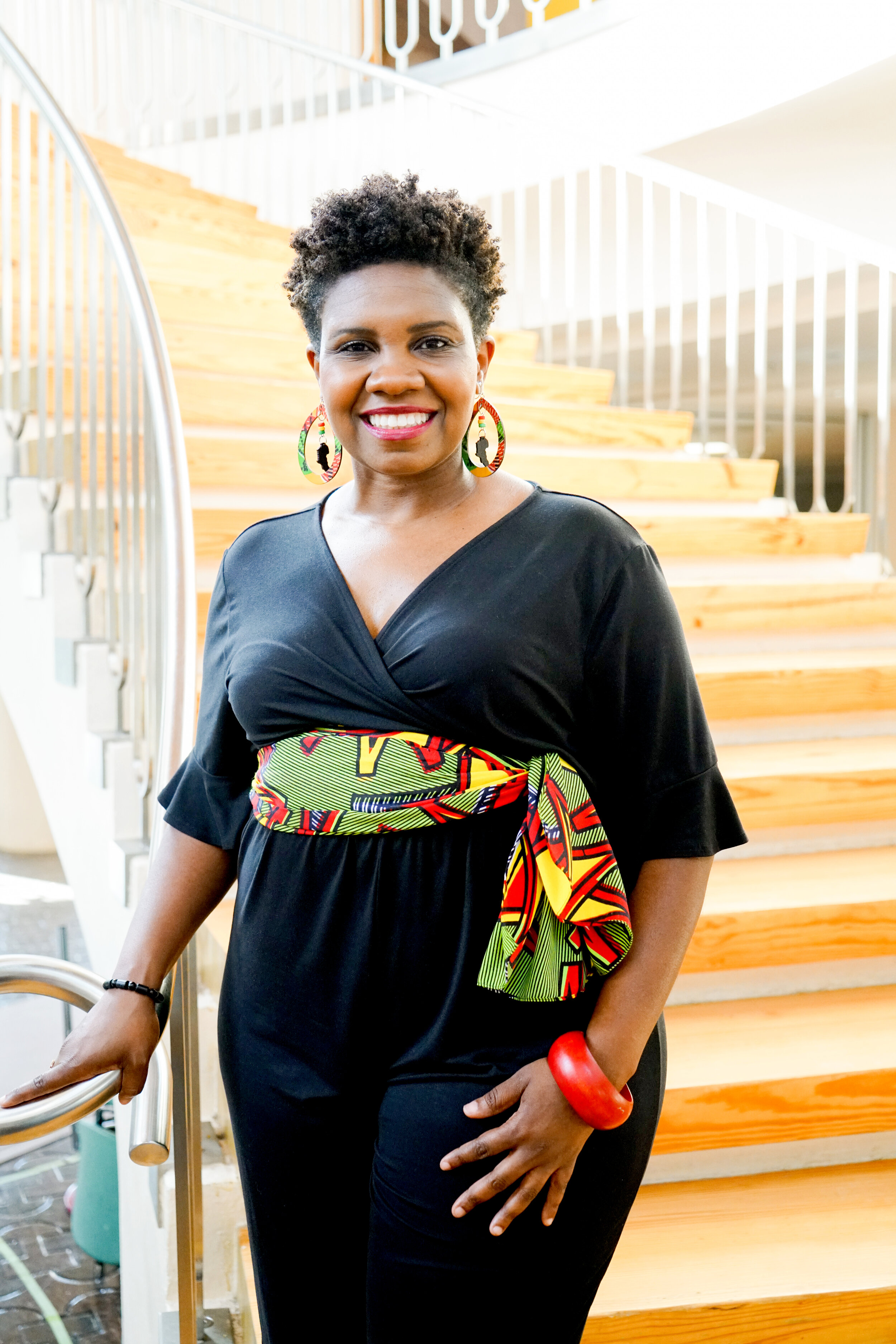
Akilah Wallace. (Photo by Kirsten Chilstrom.)
After high school, Akilah began working toward her bachelor’s degree at Wright State University in Dayton, Ohio. But plans shifted during her Junior year when she found that she was expecting a baby. As a single mother, she devoted herself to building a career that would sustain a family, eventually landing a job with JP Morgan Chase in their default mortgage division. When her son was five years old, Akilah made the difficult decision to allow her son to live with his father in the Dallas area, recognizing the need for a strong male influence in his life. A year later, a job transfer opportunity opened with JP Morgan Chase in Dallas and Akilah jumped at the chance to be back in the same city with her son.
Akilah’s new job in Dallas also opened professional opportunities, stepping into leadership roles with Ujima, the Black employees networking group at JP Morgan Chase, and the Urban Financial Services Coalition where Akilah served as chapter president and won chapter of the year. She also volunteered with the DFW Urban League Young Professionals, surrounding herself with other Black leaders who encouraged her to keep growing.
Feeling a draw toward community impact, Akilah eventually left her job in finance to take a role in the economic development office at the City of Dallas. Staying through the recession of 2007-2009, she supported city leadership who create programs of support for residents and local business owners. “The department was doing phenomenal work, but after three years I started to be turned off by the politics behind the scenes,” says Akilah. “I wanted to be closer to the people who were being impacted by my work.”
Her next step did just that, as she joined the team at Dallas Area Habitat for Humanity. “I had worked at Habitat for Humanity for about 10 months, and then I got a call from Dallas Women’s Foundation [now Texas Women’s Foundation] saying that they were looking for an executive assistant,” Akilah shares. She took on that role, learning directly from Roslyn Dawson Thompson, President of the Foundation. Over four years, Akilah worked her way up to her role as Donor Relations Manager. “During my time with Dallas Women’s Foundation, I was deeply involved in the development team. I was looking at the majority of the women we were engaging with, and to be honest, there weren’t many Black women or women of color. From all of my other work, I knew of a lot of wonderful Black professionals, but wasn’t quite sure why they weren’t connecting to the Foundation and the foundation world in general,” explains Akilah. “From the position I was in, overseeing volunteers at big events, I began changing who was invited to volunteer, shifting from predominantly white women and instead reaching out to Black professional groups like the Urban League Young Professionals. I also connected with public schools to send girls of color to our events as student volunteers.”
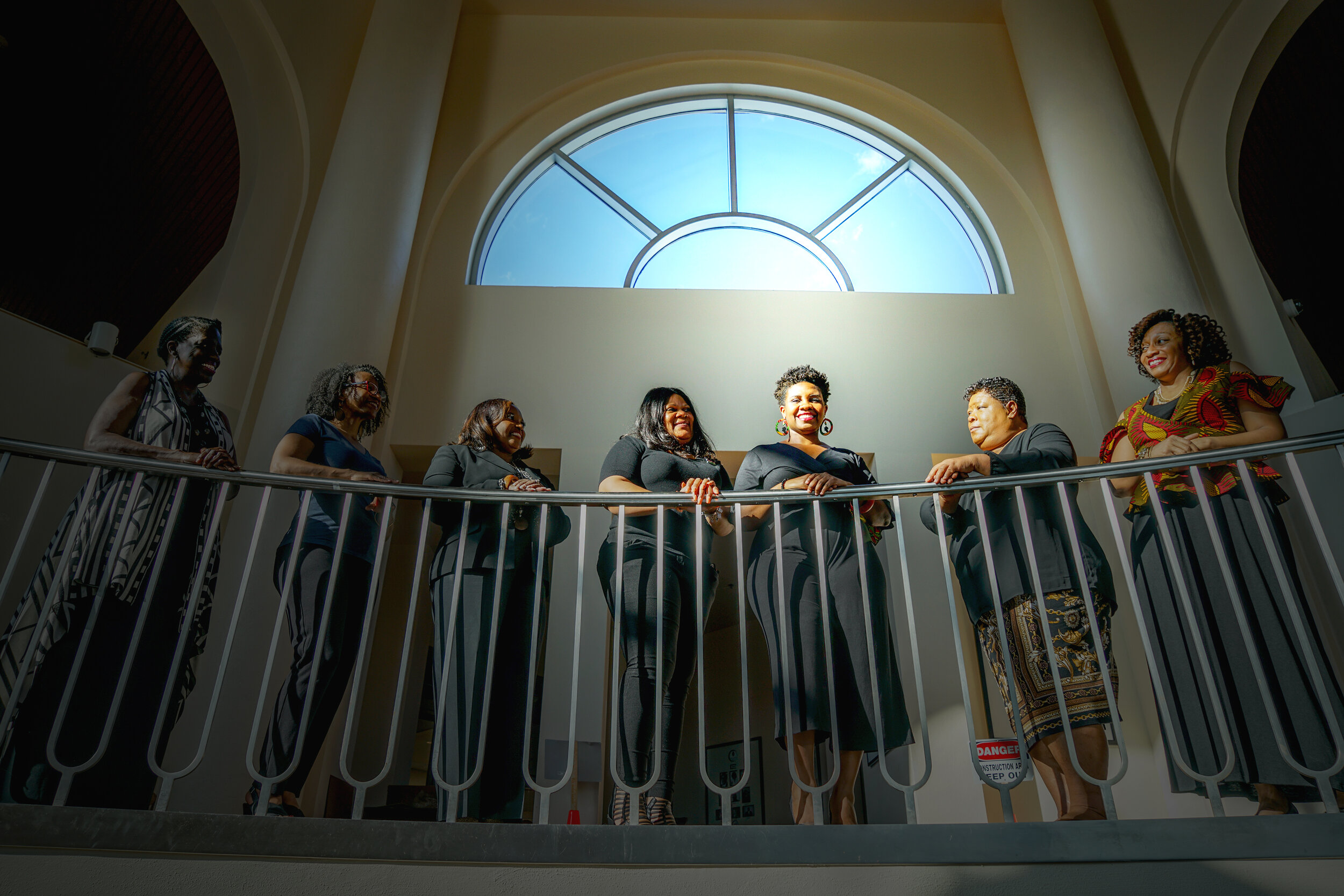
Akilah with a group of nonprofit Executive Directors, majority being grant recipients of HERitage Giving Fund. (Photo by Kirsten Chilstrom.)
To dig deeper into the issue of inequality in Dallas philanthropy, Akilah began researching Black philanthropy in other parts of the country, looking to get a sense of the national movement. What she found was a large community of Black giving circles and investment networks. During her research, Akilah learned about the Asian American/Pacific Islanders in Philanthropy and connected them to leadership at Texas Women’s Foundation. That introduction helped to create the Orchid Giving Circle here in Dallas, and then, in 2017, Akilah brought together a group of Black women leaders in nonprofit and philanthropy to create HERitage Giving Fund, aimed at strategically funding nonprofits that serve African American women and girls throughout North Texas. Shortly after, The Village Giving Circle was created, and the H100 organization joined Texas Women’s Foundation as a fund centered around Latina women in philanthropy.
“Over a million dollars collectively from all the giving circles has been pulled together by women of color for reinvestment in nonprofit organizations benefiting people of color here in North Texas,” Akilah says. “We recognized the gap from the philanthropy side, but there are also many grassroots organizations that are missing out on access to funding. There are women who are sacrificing themselves and are doing the work, but don’t have the capacity to fill out extensive reports. It was a hindrance. But this giving circle model allows us to determine who we want to fund, while also giving us the opportunity to teach them how to access other funds.”
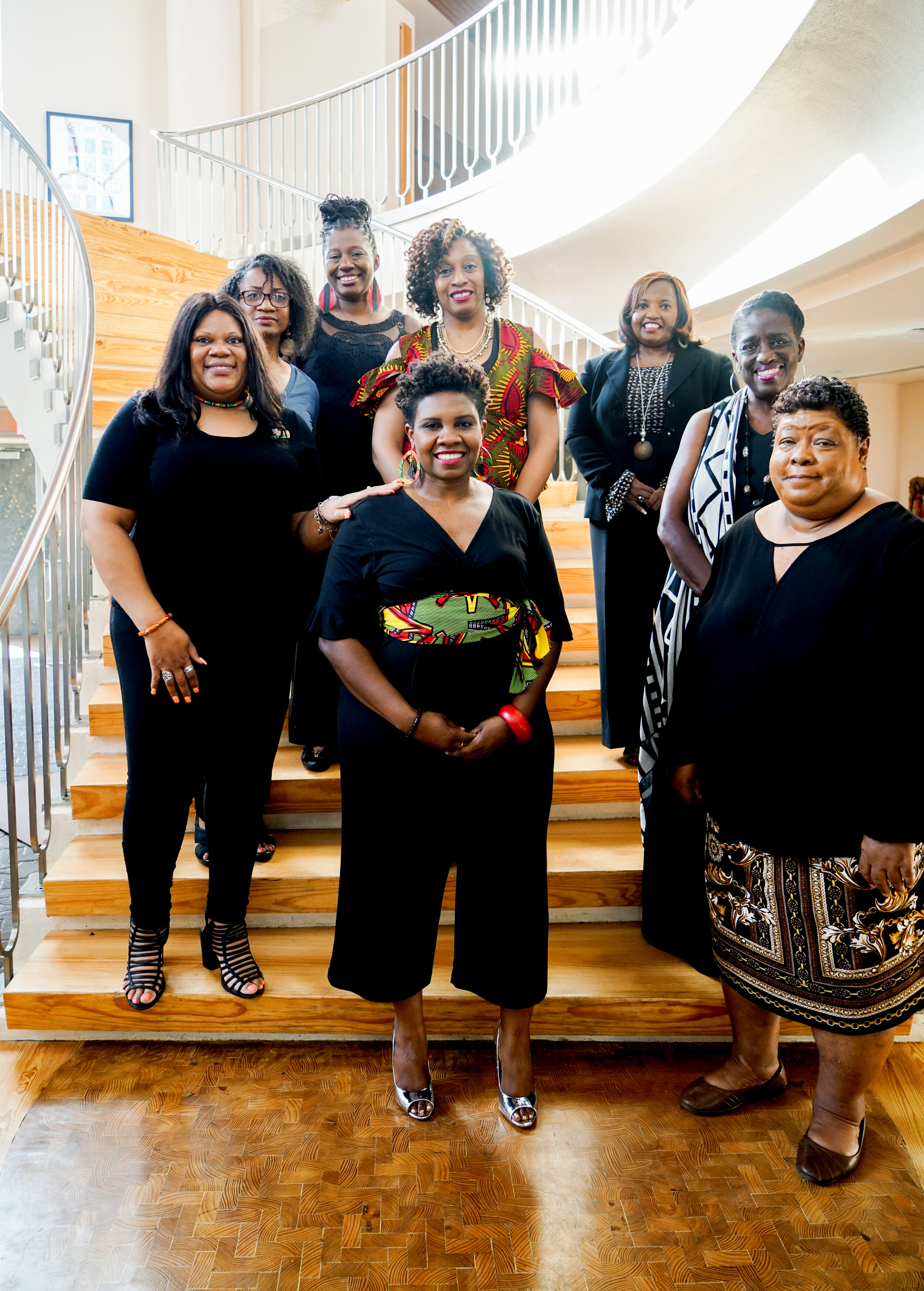
Akilah with some of the women of the HERitage Giving Fund. (Photo by Kirsten Chilstrom.)
After two grant cycles, HERitage has awarded over $50,000 and is currently fundraising for its third round of giving. “HERitage is supporting nonprofits like Heart of Courage, which provides support and advocacy for women who have their children placed in the Texas foster care system and mothers who have aged out of the foster care system,” says Akilah.
Just before launching HERitage, Akilah transitioned from her role at Texas Women’s Foundation to the Development Director at Faith in Texas, an multi-faith grassroots organization focused on economic, racial, and social justice for all people. She also enrolled at UNT Dallas in Oak Cliff, committing to finish her bachelor’s degree in Human Services Management and Leadership. “After prioritizing everyone else, this is the one thing I can sacrifice for myself,” shares Akilah. “I’ve had phenomenal mentors like Dr. Froswa’ Booker-Drew and Dr. Halima Leak Francis who have been my cheerleaders, telling me that they are glad I have made it this far without my degree, but not wanting it to be a future barrier in my career.”
In October of 2018, the Faith in Texas Board of Directors named Akilah interim Executive Director, then made the role permanent three months later in December. Her passion for the work of civic engagement, and the ability to communicate across typical boundaries of faith and ethnicity has made Akilah a role model for other community nonprofits. “Our team is working with all communities of faith and those who have a love for humanity. We partner with clergy and lay people in order to change the dominant narrative about how faith is seen and heard in public life. Here in Texas, there are certain issues that are directed one way or another, solely based on a person’s faith tradition. That can often be confusing, and may not reflect the truth of what they believe.” Akilah points to issues of undocumented residents, mass incarcerations, lack of affordable housing options, and vast economic disparities as points that can be polarizing for people of faith. “We are working to name the lies that come up, not only in the justice spaces, but also in the way that those issues connect to people of faith.”
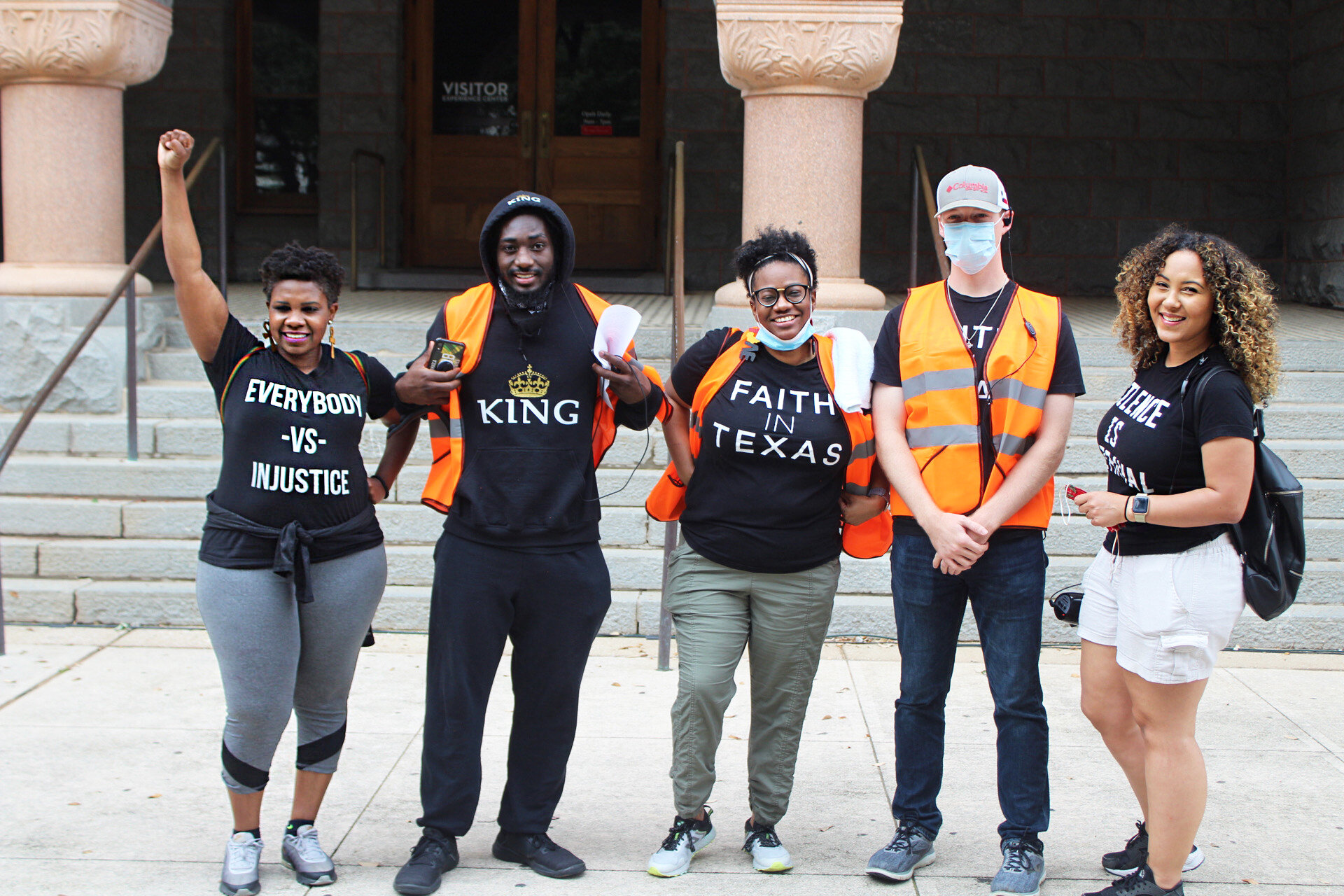
Akilah with her Faith in Texas team during their Never Again Pilgrimage through downtown Dallas on Saturday, June 20th. (Photo by Janell Bethea.)
As COVID-19 appeared in Dallas, Faith in Texas was quick to assess that there would be major issues related to housing, and the impact that loss of income would have on residents’ ability to pay their rent. Akilah and her team organized in partnership with other community organizations to ensure there was a moratorium on evictions in Dallas, gathering over 2,500 petition signatures and hundreds of emails for the Dallas City Council. Their work paid off, resulting in the first virtual meeting of the city council placing a temporary ban on evictions during the peak of COVID-19 related job loss.
Faith in Texas also turned their attention toward people in Dallas jails who were unable to pay bail, and also unable to practice the social distancing necessary to avoid being infected by the virus responsible for COVID-19. “We immediately began putting pressure on the local sheriff, county commissioners, and other felony and misdemeanor judges to change the ways they were producing a pipeline of people into the jail,” says Akilah. “And we also began working with clergy and community members to demand the release of vulnerable people in the jail, especially those who were sitting there, not because they had been convicted of a crime, but simply because they could not afford bail. There is a system that says you have to pay for your freedom.” Because of their actions, Faith in Texas saw a decrease of at least 1,000 people awaiting bail release in Dallas jails, but still recognize there is more work to do. “Faith in Texas has a Luke 4:18 bail fund, and on May first we were able to bail out four individuals thanks to seed funding we received from the Robert F. Kennedy Human Rights Foundation,” explains Akilah. “But we also got a very clear assessment of the system and the barriers that exist when you are not able to bail somebody out of jail, even though you have all the cash on you.”
Then on Friday, May 29th, less than a week after the killing of George Floyd by a Minneapolis police officer, someone tweeted that Faith in Texas had a bail fund that was accepting donations for any protesters who were arrested. “We had planned that next week to be on sabbatical for our team. I had told them that Friday afternoon that they should take the week to grieve, lament, and heal.” But due to the overwhelming outpouring of support and new donations for the Faith in Texas Luke 4:18 Bail Fund, their leadership kept working through the weekend and into the next week to steward that money well, and prepare to quickly respond to any need from jailed protesters. “Thankfully most protesters were released on a no-cash bond,” Akilah explains.
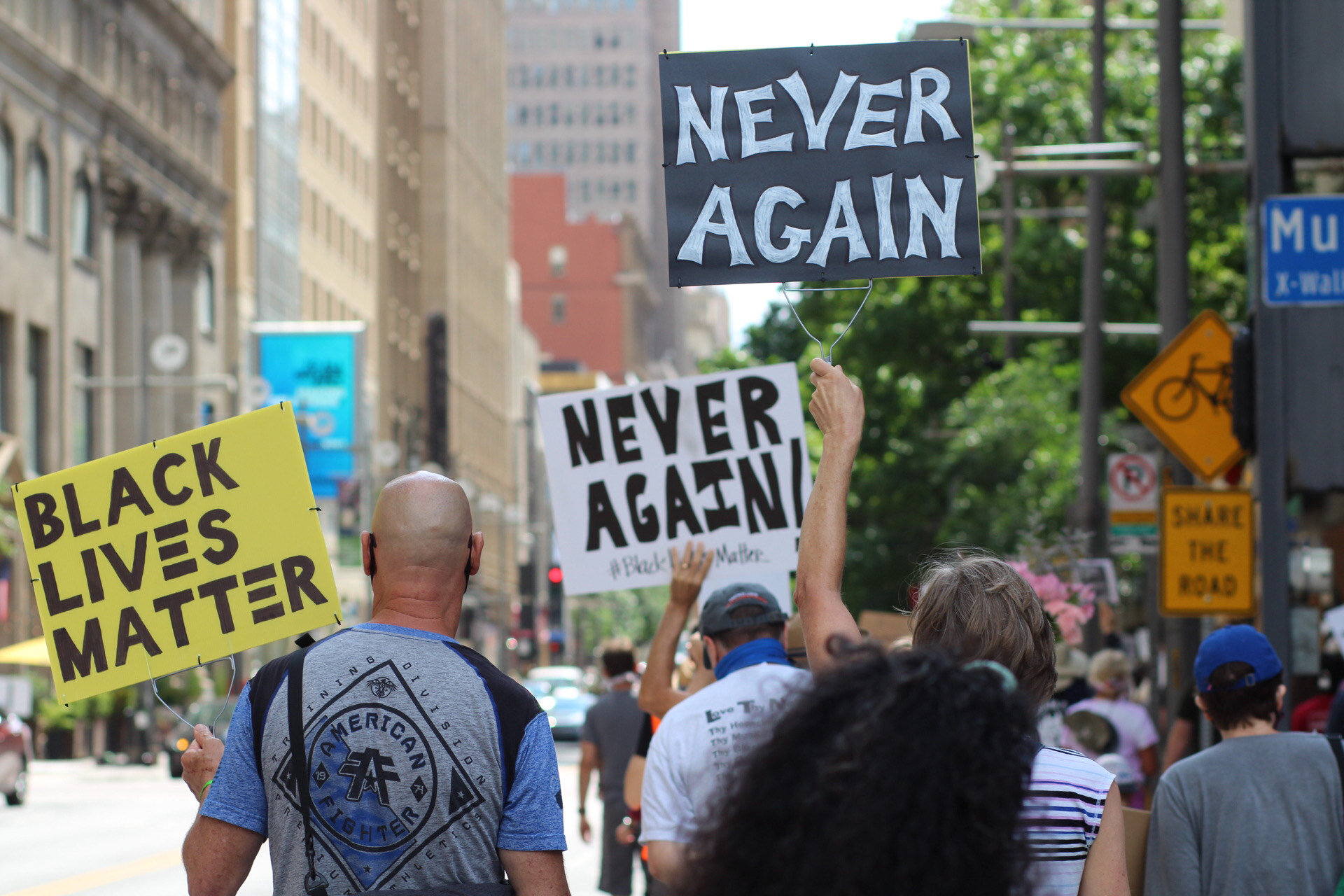
Never Again Pilgrimage through downtown Dallas on Saturday, June 20th. (Photo by Janell Bethea.)
And while protests, marches, and pilgrimages are still taking place across the state, Akilah is focused on engaging new supporters in long-term civic discourse, education, and action. “All of our core issues feed into our integrated voter engagement platform,” says Akilah. “Our goal is to educate lay people, clergy, and community members around faith institutions about how they can impact those issues positively by way of their engagement in democracy. That they not only vote, but understand the power behind their vote. We want everyone to understand the downstream effects; who is your councilperson, who is your mayor, who your felony and misdemeanor judges are, who your sheriff is, and understanding the money, and how much is being spent on what will help your family to thrive. We want people to understand racism and patriarchy, and that these systems have been in place for generations to keep Brown and Black people oppressed and suppressed, and what power looks like when we come together to dismantle these systems so we all can thrive, no matter your race, background, or faith belief.”
Surrounded by issues of injustice, it would be easy for Akilah to feel pessimistic about the direction and imbalance of power, but she also has her eye on the change-makers in the community. “The word I’ve been using is, encourage. I’m feeling encouraged,” she says. “Because I am in close proximity with the wonderful work that is happening across grassroots organizing groups and coalitions. Change is coming. We are heading in the right direction. There are still issues that need to be addressed, and clear demands that are coming from the community. Change has to come.”
Akilah is also encouraged by the grassroots funding of the Faith in Texas mission. “The average gift for the bail fund was around $41,” Akilah shares. “We were seen as a trusted source because of the fact we are faith-based. And because of that trust, we are able to shift the dominant narrative about faith in the public square, so that it can be associated with the way we love one another regardless of who you are, where you come from, what you believe, what your sexual orientation is, and what your lived experiences have been. We are a collective of people of all faith and no faith who believe in humanity and are ensuring that all Texans get to thrive.”
If you would like to get involved with Faith in Texas, you can start by attending the virtual training for their Rapid Action Network, or register for an upcoming online event Imagining Safety: Race, Policing, and Incarceration on Saturday, July 11 at 2PM. You can also Pledge to vote or make a donation.
More Good Stories
Featured
When Kathy and Larry Helm heard about The Senior Source’s 60th Birthday Diamond Dance-Off, they knew they had to put on their dancing shoes! For the Helms, this event combined two of their passions into one. Celebrating and supporting The Senior Source, a Dallas-area nonprofit that has been serving older adults for 60 years, and dancing together, which they have been doing since they were high school sweethearts. Both Kathy and Larry have chaired the board of directors of The Senior Source and have been proud supporters since 1998. It seemed only fitting they should be voted into the finals to dance on stage at Klyde Warren Park this past summer.
In 2020, more than 912,000 women were diagnosed with some form of cancer in the United States alone. During that same pandemic year, countless medical appointments were canceled while people were social distancing, and yet still each day nearly 2,500 women heard the news, “you have cancer.” There is no doubt that these words can be crushing to hear, but what’s equally crushing is the lack of tangible, encouraging support that exists to help women feel beautiful, strong or “normal” before, during and after cancer treatment.
When Tom Landis opened the doors to Howdy Homemade in 2015, he didn’t have a business plan. He had a people plan. And by creating a space where teens and adults with disabilities can find meaningful employment, he is impacting lives throughout our community and challenging business leaders to become more inclusive in their hiring practices.
Have you ever met someone with great energy and just inspired you to be a better you? Nitashia Johnson is a creator who believes by showing the love and beauty in the world it will be contagious and make an impact. She is an encourager and knows what “never give up” means. Nitashia is a multimedia artist who works in photography, video, visual arts and graphic design. Her spirit for art and teaching is abundant and the city of Dallas is fortunate to have her in the community.
The United Nations Association Dallas Chapter (DUNA) honored Rev. Bill and Norma Matthews for their ongoing commitment, helping advance the United Nations Sustainable Development Goals agenda by promoting peace and well-being.
This season, Girl Scouts are again selling cookies in creative, socially distant, and contact-free ways to keep themselves and their customers safe during the ongoing COVID-19 pandemic. Many Girl Scouts will run outdoor cookie booths that follow local, state, and CDC guidelines while still getting everyone’s favorite cookies to their customers.
The Dallas Doing Good Editorial Team invited Dallas photographer, Don Tortellini, to present his photo essay on homelessness: the faces of Dallas. Don spends time with the homeless and has become a trusted friend to many. The following story and captions are Don’s words from his personal interviews with each participant.
When artist Jennifer Troice created her first helping hands sculptures, she did so to show appreciation to friends and family who helped her through a dark period of time in her life. As her business continued to grow, the helping hands became her signature piece in her philanthropic giving.
An event that began in May 2020 has now become a continued tradition for the team and partners at the Mark Cuban Heroes Basketball Center. The Center Table Harvest provided boxes of food and vouchers for turkeys for 500 families this past weekend, bringing together volunteers from around the community, including Dirk Nowitzki and first responders.
By bringing beautiful block-printed linens to tables in Texas, Mallory Martin is not only starting conversations about modern day human trafficking, but also empowering survivors with sustainable employment. Mended, her new home decor company, is partnering with local and international organizations in South Asia to train women in the art of block printing, as well as business practices that will bring economic freedom.
